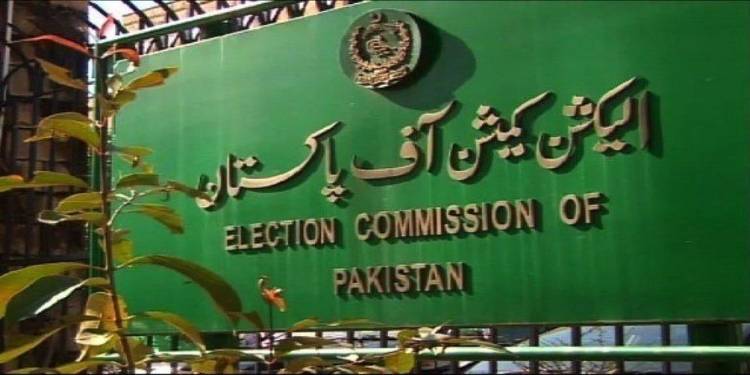
The Election Commission of Pakistan (ECP) has excused itself from holding discussions with President Arif Alvi regarding elections in Punjab and Khyber Pakhtunkhwa, saying the matter is now being reviewed by the judiciary.
Earlier this week, President Alvi summoned the election commissioner for an "urgent meeting" on February 20 (Monday) to discuss the election's date, berating him for the ECP's "distressing approach."
ECP has now stated that it may not be able to engage in a process of consultation with the office of the president due to the "issue being subjudice at several judicial forums" and a number of other factors. The ECP also criticized the president's "selection of words" in the letter.
According to a letter from the ECP secretary to the president's secretary, the electoral body is fully aware of its legal and constitutional responsibilities.
https://twitter.com/ECP_Pakistan/status/1627253023398326272?s=20
"It is worth noting that Article 105 read in conjunction with Article 112 of the 1973 Constitution of the Islamic Republic of Pakistan specifies the procedure for allocating poll dates in the event of dissolution of provincial assemblies," the letter states.
Following the dissolution of the assemblies in Punjab and Khyber Pakhtunkhwa, the ECP contacted the governors of both provinces to determine a date for the elections, and the ECP secretary notified the president's office. He stated that the governors of Punjab and KP had replied to the letters but had not yet provided a deadline.
In reference to the Lahore High Court's (LHC) directive regarding the date of the Punjab election, the letter noted that the ECP had consulted with Punjab Governor Baligh ur Rehman in accordance with the orders, but that he had stated his intention to file a lawsuit in opposition to the ruling.
The ECP secretary informed the president's office that the commission had appealed the high court's decision in a separate Intra court appeal "on the ground that the process of consultation with the governor is not provided in the Constitution" and had requested additional guidance from the court through a miscellaneous plea.
Earlier this week, President Alvi summoned the election commissioner for an "urgent meeting" on February 20 (Monday) to discuss the election's date, berating him for the ECP's "distressing approach."
ECP has now stated that it may not be able to engage in a process of consultation with the office of the president due to the "issue being subjudice at several judicial forums" and a number of other factors. The ECP also criticized the president's "selection of words" in the letter.
According to a letter from the ECP secretary to the president's secretary, the electoral body is fully aware of its legal and constitutional responsibilities.
https://twitter.com/ECP_Pakistan/status/1627253023398326272?s=20
"It is worth noting that Article 105 read in conjunction with Article 112 of the 1973 Constitution of the Islamic Republic of Pakistan specifies the procedure for allocating poll dates in the event of dissolution of provincial assemblies," the letter states.
Following the dissolution of the assemblies in Punjab and Khyber Pakhtunkhwa, the ECP contacted the governors of both provinces to determine a date for the elections, and the ECP secretary notified the president's office. He stated that the governors of Punjab and KP had replied to the letters but had not yet provided a deadline.
In reference to the Lahore High Court's (LHC) directive regarding the date of the Punjab election, the letter noted that the ECP had consulted with Punjab Governor Baligh ur Rehman in accordance with the orders, but that he had stated his intention to file a lawsuit in opposition to the ruling.
The ECP secretary informed the president's office that the commission had appealed the high court's decision in a separate Intra court appeal "on the ground that the process of consultation with the governor is not provided in the Constitution" and had requested additional guidance from the court through a miscellaneous plea.

